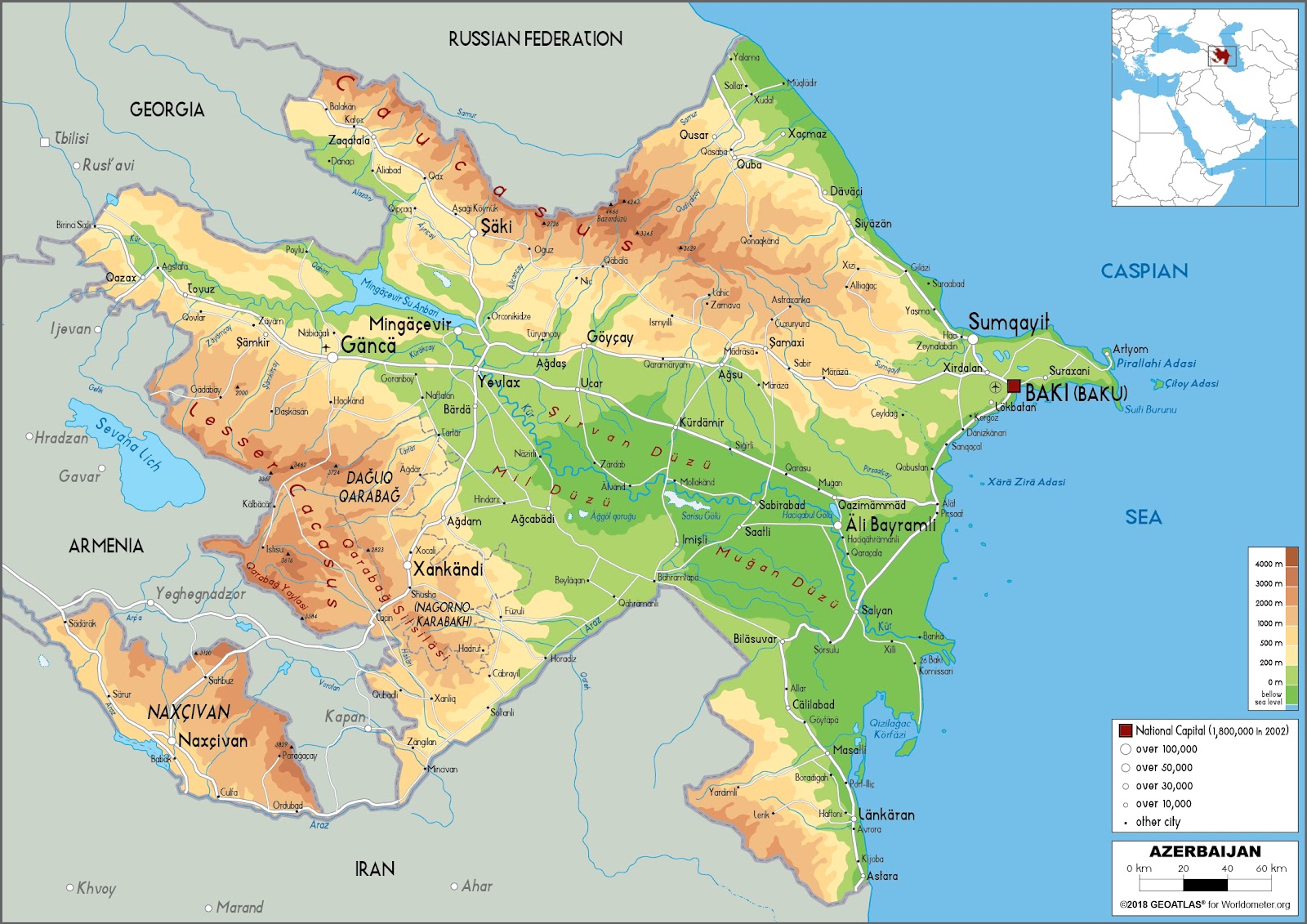GEOGRAPHY
This map shows the Caucuses. Points of interest are the Caucasian mountains that demark Russia from the Northern Caucuses and the Lessor Caucasian mountains separating Armenia from Azerbaijan. The westernmost province of Azerbaijan is called Karabakh and within it is a district called Nagorno, to give Nagorno-Karabakh.
Notice Baku, capital of Azerbaijan, as far away as you can get from Armenia on the western shore of the Caspian.
And Georgia, still south of the caucus mountains separating the caucuses from the Russian Federation, north of Armenia and Azerbaijan, with the Black Sea on the west and the Caspian on the east.
Notice also how the Caucuses have Turkey to the west Russia to the North and Iran to the south.
https://youtu.be/xums_KHP5mk?si=6hT7RzTBRCwVmRuD
In 77 AD, Armenia, greater Armenia, was the first state to convert to Christianity. Though by the 16C, much of Armenia had come under Safavid, Persian, Shia-Islam, rule.
Over the centuries, Western Armenia came under Ottoman rule, while Eastern Armenia remained under Persian rule.
In the 19C, Eastern Armenia was conquered by Russia in its war with the Ottoman Empire, and thus Greater Armenia was divided between Ottoman and Russian empires.
In 1915, there was the infamous Armenian Massacre, carried out by Ottoman Turks. Historically, the usual methods used to convert populations to Islam were massacre, mass deportations, high taxes levied on people of the book, intermarriage and various discriminatory practices notably in employment.
In 1918, Armenia gained independence from the collapsed Russian czarist regime. In 1920, Armenia became a Soviet republic.
Then in 1991 and with the first N-K war in 2020, there was a great population movement and all the Christians in the east moved to Armenia, save for Nagorno; and all the Muslims in the west moved to Azerbaijan.
SITUATION TODAY
The Nagorno district was an exclave of Armenia, but now with the second of the N-K wars, Christians have moved out to Armenia altogether and the Muslims have moved in - Shia Muslims mainly.
So much conflict and religious "cleansing". Today, Azerbaijan, which is apparently about the least secular of the Muslim states - but it is Shia Islam, which to me is not really Islam at all and is certainly a lot more easygoing than the Sunnies, esp the Salafists in Arabia - and seems to have a pragmatic and quite close partnership with Israel.
The relationship is based on weapons sales and high technology, oil which Azerbaijan supplies to Israel, and security where Azerbaijan is looking for independence from both the Turks and the Persians.
Historically, it was Armenia that had the close relationship with Russia, since the Russo-Turkey war referred to above, and through the days of the USSR; but now that Armenia has let Nagorno-Karabak go, in order that the new prime minister, Vahagn Khachaturyan president since 13 March 2022, can be free of war, so as to, he hopes, join the EU and even thinks of joining NATO, apparently thinking he can do better than the fate that befell Georgia back in 2008, it is Azerbaijan that is drawing close to Russia.
As to Armenia today, of course we are talking about the Caucuses which have had centuries of conflict due to competition between Turkey, Russia and Persia. So understandable why Armenia would want out of all that, but for Armenia to become a European "exclave" or colony, would surely leave it with a host of problems with all its neighbours.
As to Azerbaijan today, we are talking about a rapprochement with Russia, its Northern neighbour, at a time when its Southern neighbour Iran is trying to patch things up with The House of Saud. Iran doesn't like this!
And to answer the point about Azerbaijan selling weapons to Ukraine, there were certainly reports and allegations suggesting that Azerbaijan was supplying weapons to Ukraine during Ukraine's conflict with Russia, but before the latest N-K war that seems to be part of drawing an independent Armenia into Europe and an Azerbaijan into Russian influence. However, the details of such transactions were not always clear, and they may have involved private arms dealers or other intermediaries rather than direct government-to-government sales. Having said that, no weapons manufacturer can sell weapons to another country without the knowledge and permission, albeit perhaps tacit, of its government.
FOOTNOTE
Although the conflict between Israel and Gaza is taking the headlines at the moment I'm going to file this for the moment under both labels Ukraine and Armenia.











0 comments:
Post a Comment
Keep it clean, keep it lean